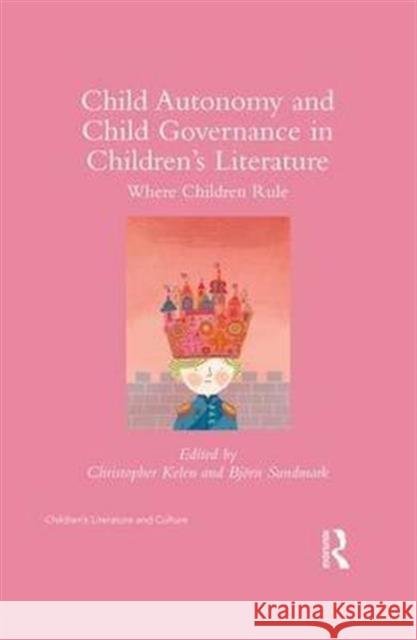Child Autonomy and Child Governance in Children's Literature: Where Children Rule » książka
Child Autonomy and Child Governance in Children's Literature: Where Children Rule
ISBN-13: 9781138931640 / Angielski / Twarda / 2016 / 240 str.
Child Autonomy and Child Governance in Children's Literature: Where Children Rule
ISBN-13: 9781138931640 / Angielski / Twarda / 2016 / 240 str.
(netto: 764,94 VAT: 5%)
Najniższa cena z 30 dni: 705,23
ok. 16-18 dni roboczych.
Darmowa dostawa!
This book explores representations of child autonomy and self-governance in children s literature.The idea of child rule and child realms is central to children s literature, and childhood is frequently represented as a state of being, with children seen as aliens in need of passports to Adultland (and vice versa). In a sense all children s literature depends on the idea that children are different, separate, and in command of their own imaginative spaces and places. Although the idea of child rule is a persistent theme in discussions of children s literature (or about children and childhood) the metaphor itself has never been properly unpacked with critical reference to examples from those many texts that are contingent on the authority and/or power of children. Child governance and autonomy can be seen as natural or perverse; it can be displayed as a threat or as a promise. Accordingly, the "child rule"-motif can be seen in Robinsonades and horror films, in philosophical treatises and in series fiction. The representations of self-ruling children are manifold and ambivalent, and range from the idyllic to the nightmarish. Contributors to this volume visit a range of texts in which children are, in various ways, empowered, discussing whether childhood itself may be thought of as a nationality, and what that may imply. This collection shows how representations of child governance have been used for different ideological, aesthetic, and pedagogical reasons, and will appeal to scholars of children s literature, childhood studies, and cultural studies."











